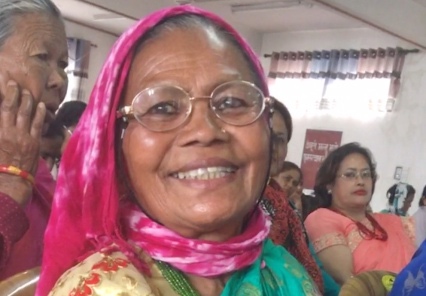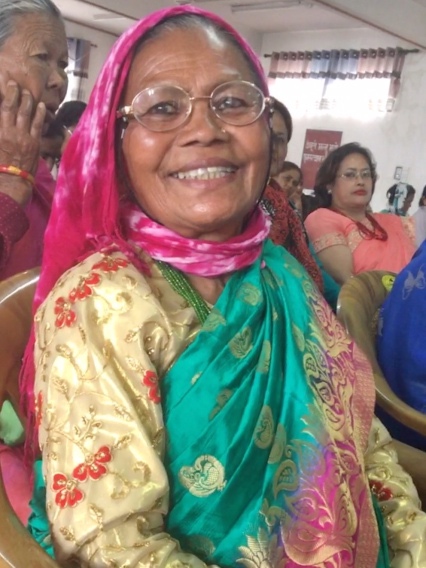
AMANDA JACKSON looks at how churches can better engage with developing women’s gifts and leadership…
Lily, a pastor’s wife from Indonesia, was sobbing quietly. She and her husband with their two young children have moved to an isolated part of Java to plant a new church. It is an exciting time for her husband, but she feels left out – she has to spend all her time establishing their new home and settling the children and she wonders how she will ever use her gifts in the church. Her husband is so busy he has no time to notice her sadness.
In India, Shuna is a young woman working for a Christian agency. She is growing frustrated because she is not listened to or respected. She is expected to take notes and make the tea at meetings even though she has more training and experience than some men round the table.

One of 150 women from across Nepal who learnt new ways to think about women in the Bible and in Nepal, at a training session in Kathmandu.
“A recent WEA/Lausanne global survey of 500 Christian female leaders identifies five key social and spiritual challenges facing women around the world: poverty; faith or gender-based violence; marriage and family pressures; the pressures of social media; and church teaching that women cannot preach or lead men.”
How do we nurture and develop gifted women leaders across the globe? We all know that women make up 60 per cent of the church, yet how many women are leading to their full potential as God gifted and created them?
More and more men (and women) are asking how to develop women’s gifts and leadership in their churches.
A recent WEA/Lausanne global survey of 500 Christian female leaders identifies five key social and spiritual challenges facing women around the world: poverty; faith or gender-based violence; marriage and family pressures; the pressures of social media; and church teaching that women cannot preach or lead men.
These are big issues. Is the church taking them seriously and making them a priority in its planning?
We will not be able to ‘solve’ all these challenges but it is vital for us to respond wisely and humbly.
One of the best things church leaders can do is listen to the heart and insights of women and seek to understand what women are going through in their communities. It will make our mission work more effective and relevant.
Another step male leaders can take is to encourage women to take up bigger and more up-front roles. This was the number one recommendation of women in the survey! Women achieve a lot in their workplace and in the family but in church, opportunities to contribute are more limited and they lose confidence and enthusiasm. We don’t want to miss out on all those talents and giftings.
It is vital to have men who encourage and champion women just as Jesus did.
A third thing the global survey identified that would encourage women in leadership was a need for good Bible teaching about women (there are 188 named women in the Bible and many more un-named heroines like the woman at the well). Pastors tend to use male examples in their sermons (because they are comfortable with those stories). What if they talked more about women in the Bible so they can relate more to the women in their congregations? We need sound teaching on marriage, family and women’s giftedness.
Both Lily and Shuna (not their real names) had the chance to recover a fresh sense of calling at leadership meetings organised in Asia by leaders of the World Evangelical Alliance’s Women’s Commission. What vital support and guidance these meetings provide.
We have thousands of equipped and faith-filled women leading amazing ministries and helping local churches disciple families and young people. In India, women train churches in how to detect and tackle trafficking in rural villages. In South Africa and Egypt, women have started many projects in poor areas to help young women. In Myanmar, women have a special role in reaching across denominations and ethnic groups to bring unity.
In Nepal, women are setting up groups in each state so they can help local communities respond to needs, not out of charity, but because God wants us “to do justice and love mercy” (Micah 6:8).
These ministries are not a side activity of the church – they are key integral mission strategies. Churches can only benefit when they listen to women, champion their gifting, pray together and welcome women as equals in the Kingdom.
The full results of the survey are being analysed over the next month and there will be more helpful recommendations coming – look out for them – it is the voice of over half the church.
Amanda Jackson is executive director of the World Evangelical Alliance’s Women’s Commission.





